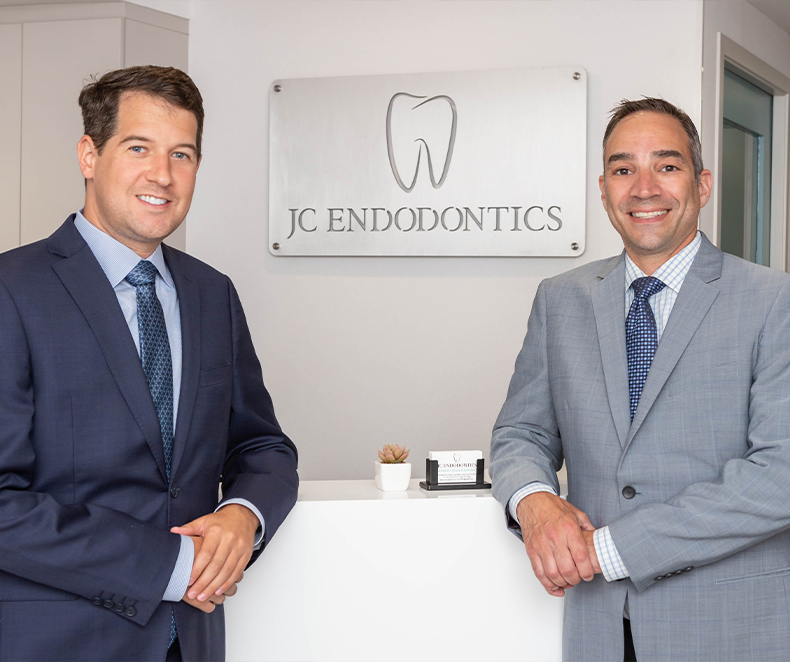Frequently Asked Root Canal Questions – New York City, NY
Answering All of Your Questions About Endodontics & Tooth Pain

Are you wondering why your tooth hurts so badly? Are you wondering what exactly an endodontist is? Our team is happy to help you get the answers you need so you can make the best decisions for your oral health. Below, we’ve answered some common root canal questions we receive from our patients, but if you still don’t see what you’re looking for, please feel free to call our office directly.
How do tooth infections form?
Infections develop when harmful oral bacteria gain access to the vulnerable internal structure of teeth, called the inner chamber. Housed within this chamber is the ‘heart’ of your tooth, called the pulp, which is a collection of soft tissue and nerves. When the bacteria infects the pulp, it can lead to common symptoms, like toothaches, and when left untreated, the infection can spread to the roots and even result in the death of the tooth. That’s why it’s crucial to not put off root canal treatment!
How can I tell if I need a root canal?
There are several signs that could mean that you require root canal treatment, including:
- Persistent tooth pain that won’t seem to go away.
- Sensitivity to hot and cold foods and beverages.
- A pimple-like bump on the gums.
- Severe redness or inflammation on the gums above the affected tooth.
- A tooth has become loose.
- Pain whenever you eat or touch the tooth.
What’s the difference between a dentist and an endodontist?
Dentists aren’t required to attend post-graduate education or a residency like endodontists are, while endodontists specialize in treating the inside of teeth, requiring them to undergo an addition two to three-year residency and education after dental school. This extra hands-on training provides them with important knowledge and skills to be able to effectively conduct root canals with a drastically lower chance of retreatment.
Why does my tooth ache?
Toothaches are one of the most common signs that you have a tooth infection. To treat this issue, you may require root canal treatment. However, if you put it off, it could lead to the need for a tooth extraction instead. The reason root canals are preferred methods of treatment is because you can preserve your natural tooth, saving you money by eliminating the need for tooth replacement procedures, and allowing you to enjoy your natural smile.
Why do I need to get a dental crown after root canal treatment?
In most cases, patients who receive root canal treatment need to have the tooth topped with a dental crown. This is to help strengthen and protect it, minimizing chances of post-op pain and re-infection. Many patients who receive root canals from our skilled team at JC Endodontics Root Canal Specialists are able to continue enjoying their natural, treated tooth for the rest of their lives.
What can I do to ease my toothache until I can get to your office?
Here are some ways to control your pain until you’re able to reach our office for treatment:
- Rinse your mouth with saltwater to help reduce inflammation and cleanse the area. Combine ½ teaspoon of salt in a glass of warm water and thoroughly swish, rinse, and spit it out.
- Apply a cold compress on the outside of your face for 10 minutes on, 10 minutes off for up to an hour to help minimize any swelling and control the area.
- Take over-the-counter pain medications as directed on the packaging, like Tylenol, Ibuprofen, or Aleve.
